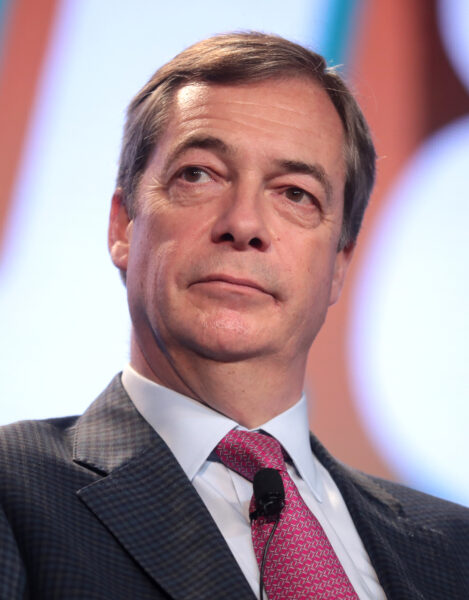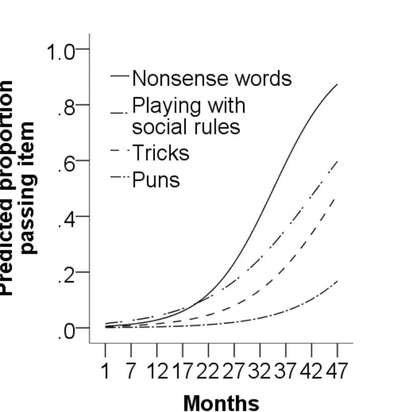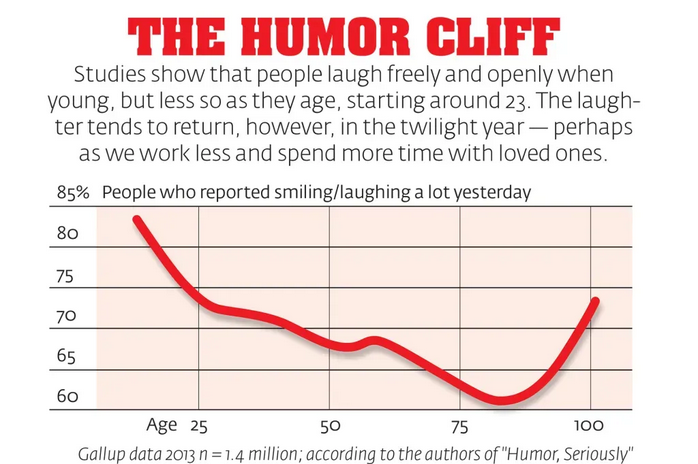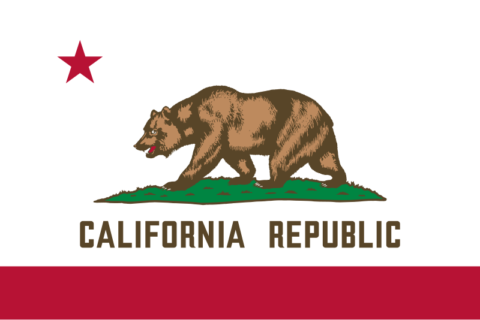A better way to grasp the essence of something is to look at the bigger picture. Over years of tasting, I’ve been drawn to a direct approach, which consists of jumping into the middle of things. I’ve found that if you start on the outside you often cannot get to the heart, and this is where you want to be. Some of the best descriptions of wine have come from people who could not analyze a wine to save their lives. They simply give an honest response to an experience just as someone would give to a Rolling Stones concert. Or, as Matisse said, they “observed … and felt the innermost nature of the experience.” Many people have difficulty doing this with wine because they believe there is a proper wine language and a correct response to each wine. They fear giving the wrong response.
Billy Munnelly, Billy’s Best Wines for 2005.
June 26, 2024
QotD: Wine criticism
June 25, 2024
The Toronto-St. Paul’s by-election
Paul Wells uncharacteristically posted his initial reaction to the Toronto-St. Paul’s by-election after the polls closed, but before the counting was over. He chose … poorly:
[Liberal candidate Leslie] Church’s margin of victory over Conservative candidate Don Stewart bounced around 10 points all Monday night. As I get ready to hit Send on this post, it’s closer to 6 points, and I have no way of knowing whether it will shrink or expand as more results come in. But if it were 10 points, that would be 9.9-ish points more than you need for a victory. I’m especially pleased to report that the result constitutes yet another glorious victory for Wells’s First Rule, which holds that for any given situation, Canadian politics will tend toward the least exciting possible outcome. In particular, in the last several days, I’ve been telling friends that this would be a particularly solid Wells’s Rule victory if the night ended with Tyler Meredith boasting on X. Et voilà:
If you slice the returns finely enough, pace Tyler, they might yield more omens and portents. Ten points would be the Liberals’ narrowest margin in TSP (as I’ll call the riding for short) since 2011, and the second-lowest in 31 years. In 2008, when the Liberals under Stéphane Dion were reduced to 77 seats out of 308, the Liberal margin of victory was more than twice what it was in Monday’s by-election. A 10-point margin of victory in TSP is what Liberals get when there’s almost no water left in the pool.
But so what. A win’s a win. By-elections are a blunt measuring tool. Paying subscribers will fill this post’s comment board with theories to explain away the night’s results, and for all I know, some of them might even be correct. Besides, for a few weeks I’ve believed that even if the Liberals had managed to lose TSP, there would have been no public or organized effort within the party to remove Justin Trudeau as leader. You can’t teach an elephant to dance, or a Trudeau Liberal to abandon the internal loyalty that has been one of the hallmarks of his leadership.
So if I’m a Liberal MP — humour me, it’s a thought experiment — I now know what the next year looks like. Justin Trudeau has spent his adult life waiting for the rest of us to realize he was right all along, as we saw in a book that was published last month to extravagant praise. The returns from Toronto will comfort the big guy’s belief that the scales have again begun to fall from Canadians’ eyes, and that therefore this is absolutely the worst time to mess with a winning formula.
He’ll stay. Katie will stay, Ben will stay, Chrystia will stay, Mélanie and Seamus and Max and Clow and all the cats will stay, and the Trudeau team will show new spring in its step as it prepares to get, once more, off the ropes and back into the fray.
To be fair, he did add an update overnight indicating that Stewart had pulled ahead but the counting was still ongoing, and a link to the Elections Canada preliminary results, which I screencapped here just after 9am:
This morning, Mr. Wells posted a follow-up to yesterday’s ever-so-slightly misleading article:
Well, of course I saw it coming all along. What kind of fool could have imagined the Liberal in Toronto — St. Paul’s had any chance?
Hang on. I’m just getting word that I didn’t see it coming. In fact, as recently as Monday night I wrote a post I’ll be hearing about until the cows come home. Sorry about that!
Here are the actual final results, barring any recounts, which may not happen because Conservative Don Stewart’s margin of victory, while slim, is too large to trigger an automatic recount.
Congratulations, Don Stewart! I never doubted you’d win. Hang on. I’m just getting word that I doubted you’d win as recently as last night.
Things will now start to happen quickly. Expect Liberals to work their way through four of the five Kübler-Ross stages of grief before lunch. Denial will come easily, benefiting as it does from long practice. Acceptance may take longer.
In part this is because on paper there isn’t that much to accept. The day’s news is not earth-shaking and, in isolation, should not be taken as definitive. It’s true that by-elections are strange events, though if you add them together they do have some predictive power. It’s true that Leslie Church’s long service as Chrystia Freeland’s chief of staff turned out to be more of a hindrance than a help, a data point whose implications the Deputy Prime Minister won’t want to think much about today. It’s true the Liberals didn’t even try all that hard, if by “didn’t try all that hard” you mean “they tried as hard as they possibly could, my God they tried so hard, my God.”
But a single off-season defeat in a riding the Liberals have, in fact, previously lost during the Paleozoic era is not a larger thing to accept than, say, a punishing loss to Ireland and Norway in a Security Council vote at the UN. Or the loss of two senior cabinet ministers in a controversy in which the ministers who quit were radiantly, obviously in the right. Don’t take my word on that, incidentally: ask David Lametti, who agreed with Jody Wilson-Raybould but managed to keep his job anyway. For a while.
I imagine there’ll be a lot of interesting commentary from other Canadian sources as the day rolls on and the immediate horror starts to recede…
The ebbing tide of Corbynism
In Spiked, Brendan O’Neill finds the humour in the staggering collapse of the Corbynist wing of the British Labour Party, from being tantalizingly close to forming a government to today’s political knife-fight for a single seat in North London:

Jeremy Corbyn, then-leader of the Labour Party speaking at a rally in Hayfield, Peak District, in 2018.
Photo by Sophie Brown via Wikimedia Commons.
Schadenfreude is an unbecoming emotion, I know. But if you think I am not going to derive at least fleeting pleasure from the fact that the Corbynista movement went from being on the cusp of government to fighting tooth and nail to hold on to one poxy constituency in north London, then you are off your rocker. We must all find mirth wherever we can in this drabbest of elections. And I find mine in the staggering contraction of Corbynism, the almost total collapse of this cause that was once so beloved of every trustafarian Trot, Glasto wanker and they / them fruitloop.
It’s nearly too funny for words. Five years ago, Jeremy Corbyn and his crew were eyeing up Downing Street. They were in the running to run the country. Now they’re entirely concentrated in Islington North. Corbyn once commanded vast crowds of affluent youths at Glastonbury, basking in their posh chant of “Oh, Jeremy Corbyn!”. He had whole armies of time-rich tweeters who put their expensive education to good use by barking at us “gammon” about how “Jez” was “the absolute boy”. Now he can just about rustle up a few score political anoraks to go canvassing for him in a little bit of north London. It would require a heart of stone not to laugh.
Much has changed for “Jez” in the past five years. He was leader of the Labour Party back then. Now he isn’t even a member of the Labour Party. He was suspended in 2020 after he said the scale of Labour’s anti-Semitism problem under his leadership from 2015 to 2020 had been “dramatically overstated for political reasons“. Then he was officially expelled this year after he announced his intention to stand as an independent in Islington North, the constituency he represented for Labour since 1983. The man who wanted to be PM is now fighting for his life to remain an MP. We’ve gone from “socialism in one country” to “socialism in one constituency”.
Die-hard Corbynistas are flocking to Islington North as if it were the Paris Commune under attack from Versailles. They’re beating the streets to plead with constituents to return the absolute boy to parliament in order that socialism might yet live. The list of starry names Corbyn has dragooned to his door-knocking cause reads like a Sky News producer’s rolodex of wankers. Shola Mos-Shogbamimu, anyone? Yes, I’m sure her post-truth bollocks about “all white people [having] white privilege” will go down a treat among the white working classes on the council estates of Archway.
There’s Grace Blakeley, too, a privately educated flapper-girl socialist who thinks flouncing out of a book festival is “collective action“. That’s how she described her decision to withdraw from the Hay Festival over its receipt of funds from the investment management firm, Baillie Gifford. Tweeting “I’ve decided not to go to Hay” is the well-heeled millennial’s Battle of Orgreave. Perhaps Ms Blakeley will compare her class-war wounds with those of some old Irish fella she meets in a pub in Holloway when she’s out electioneering for the boy.
“Nigel Farage’s sin […] was to tell the truth which our rulers and their bought, sycophantic media are desperate to hide from us”
As the British general election rumbles into its final days, most media outlets reacted very strongly to Nigel Farage’s willingness to break with the narrative over the outbreak of the Russo-Ukrainian war:
Nigel Farage has really got the elites and their prostitute mainstream media panicking, this time by being the only politician who dares tell the truth about the origins of the Russia-Ukraine war.
First let me stress that I am not condoning Putin’s invasion of Ukraine. But Putin has made it very clear for at least the last 15 years that he saw Ukraine and Georgia, which both have long borders with Russia, joining Nato as an existential threat to his country and warned “not an inch eastwards”.
The West arrogantly ignored Putin’s warnings. That was dumb.
At a conference in April 2008, where Putin was invited to address Nato leaders, he warned that inviting Ukraine and Georgia to join Nato, and thus parking Nato troops and missiles directly on Russia’s borders, would be seen as an existential threat to Russia’s security. This was even reported in the BBC’s in-house rag, the Guardian, on April 4 2008: “The Russian president, Vladimir Putin, today repeated his warning that Moscow would view any attempt to expand Nato to its borders as a ‘direct threat'”.
In December 2021, Putin yet again warned the West that allowing Ukraine and Georgia to join Nato would be unacceptable, in the first minute of this three-minute video. In this video Putin (sensibly in my opinion) asks whether the US would allow Russian troops and missiles to be positioned along its borders with Canada or Mexico and reiterates his “not an inch eastwards” threat.
Yet in January 2022, the US presented its written response to Russian demands on Ukraine not joining Nato and on Nato troops being withdrawn from Romania and Bulgaria, but made clear that it did not change Washington’s support for Ukraine’s right to pursue Nato membership, the most contentious issue in relations with Moscow.
The reply, which was delivered to the Russian Foreign Ministry by the US ambassador in Moscow, John Sullivan, repeated the US offer to negotiate with Russia over some aspects of European security, but the Secretary of State, Antony Blinken, said the issue of eventual Ukrainian membership of the alliance was one of principle.
Blinken was speaking hours after his Russian counterpart, Sergei Lavrov, threatened “retaliatory measures” if the US response did not satisfy the Kremlin.
“Without going to the specifics of the document, I can tell you that it reiterates what we said publicly for many weeks, and in a sense for many, many years. That we will uphold the principle of Nato’s open door”, Blinken said, adding: “There is no change. There will be no change.”
In all places and at all times, the true minimum wage is zero
Tim Worstall explains why fast food restaurants like McDonalds and Burger King are reported to be introducing new low-priced value meals to try and attract and keep more customers in the current economy:

“McDonald’s restaurant, Toledo OH, 1967” by DBduo Photography is licensed under CC BY-SA 2.0 .
It’s terribly unfashionable to say that minimum wage rises have any effects — other than that the minimum wage workers earn more, of course. It’s supposed to be one of those areas where only good things can come from poking a stick in the market. The justification is that the only jobs these folks can get are slinging fries (If that is the case then I’d probably start with education system reform so that grievance studies graduates are skilled enough to do something else but maybe that’s just me), therefore MaccyD’s and the like have a monopoly on employing them (a “monopsony”) and so omniscient and caring politicians and bureaucrats can correct this market error without there being any side effects.
Hmm. Seems unlikely but that is the story.
[…]
The standard economics of a minimum wage rise is — well, was before the progressive smokeblowing about monopsony — that the money’s got to come from somewhere. It could be that profits fall and therefore there’s less investment — even a move away from having invested in — that activity and so employment falls. Or, wages are higher for those fewer people employed and some lose their jobs — also known as rising productivity and also known as fewer jobs. Or, customers get to pay higher prices, fewer now buy the item and so employment falls as the sector shrinks.
Hmm, well, we can get all serious about monopsony but that one doesn’t work to my mind either as even if profits were excessive a fall in them will still lead to less investment in the sector and we’re back at option 1) above. But, many have convinced themselves.
But here we’ve got a general agreement that Americans are eating fast food less. They’re eating at home more. The only thing that’s changed in the varied cost structures is the price of fast food labour. Sorry, the only thing that’s changed in the *relative* cost structures is that labour as the minimum wage is pushed up. Whatever food inflation has been it’s been no better or worse for MaccyD’s than it has been in Albertsons or King Super. It’s also true that US real incomes have been rising so it’s not a general retreat on the part of consumers. The price of fast food relative to home prepared has risen, people are buying less fast food. The only cost pressure causing this is the pushing up of the minimum wage in recent years (for chains, in California, it’s now $20 an hour).
Myself I take that as being proof of the original and base minimum wage argument in standard economics. Trying to recoup that fall in sales is what is leading to these special offers — and don’t forget they’re special, not for all time and so should be considered advertising, not a long term change in price levels.
As a larger lesson I take it to mean that we should be very wary indeed of those claiming that there’s some special little economic trick that makes what they want to do anyway such a good idea. Why, yes, that does include any special little tricks I might want to claim. But many really did convince themselves that fast food wages were different, that pushing them up would have only good, not ill, effects.
Seems it ain’t so.
Over the weekend, there were a few stories about a small fancy coffee chain whose employees had successfully unionized to get better wages, only for the owners to shut down all three stores because even before the workers unionized, they were losing money on the business. Rather than the higher wages the employees were expecting (while keeping their unusually generous benefits for such entry-level jobs), all their jobs were lost and nobody won. Small businesses like restaurants operate on a far smaller profit margin than most people believe … according to Statistics Canada, the average restaurant of all types made a 4.3% profit in 2022.
A Travel Guide to Crete in the Sixties (1964) | British Pathé
British Pathé
Published Apr 13, 2014This segment of Pathé Pictorial gives a snapshot of what the beautiful island of Crete, Greece looked like in the nineteen-sixties. From a rich history that is ever present in the architecture of the city to sunny beaches, Crete truly has it all.
A look at the many attractions on the island of Crete.
Various shots of tourists water skiing or lying on the beach in swimsuits and eating in restaurants. Various shots of the seashore caves where locals live in the summer. Various shots as they harvest grain, bake bread and weave outside. There are also shots of windmills in the fields and men milking goats.
People play the lyre and dance in a circle. Various shots of the ruined palace at Knossos including the pots, and paintings on the walls. Several more shots of holidaymakers on the beach.
(more…)
QotD: Progress and decline
The past has always interested me more than the future. This backward-looking tendency has only been reinforced by reaching, somewhat unexpectedly, the age of 70. I can’t say that I don’t feel my age because I don’t know what feeling any particular age is like — but one repeatedly hears that 60 is the new 40, 70 is the new 50, and so on; certainly, the human aging process has slowed since I was born. When I look at photos of people who were 50 in the year of my birth, 1949, they look much older and more worn-out than do 50-year-olds now; and if I had lived only to my life expectancy at birth, I would be dead these last four years.
So progress must have occurred in the intervening time, despite the pessimism that infects those who, like me, are of retrospective temperament and hypersensitive to deterioration. It is not hard to enumerate many things that have improved. They relate principally, but not only, to material conditions. My best friend when I was very young was one of the last children in Britain to suffer from polio, which paralyzed him from the waist down. The quickest form of written communication was then the telegram, and anything other than local telephone calls had to go through an operator. To call across the Atlantic required a reservation and was ferociously expensive; the resultant conversation always seemed to take place during a violent storm. In England, the food was generally disgusting, and meals were to be endured as a regrettable necessity instead of enjoyed (it puzzles me still how people could have cooked so badly). Cars broke down frequently, and every November, pollution produced fogs so thick that you couldn’t see the hand in front of your face (I loved them). Rationing continued for eight years after the war, and disused bomb shelters, present in every park, were where illicit sexual fumbles and smoking took place. Incidentally, for an adult male not to smoke was unusual (75 percent did so); we must have lived in a perpetual fog of foul-smelling tobacco, to judge by the distaste caused by even a single lit cigarette in these virtuous times. Poverty, as raw necessity, still existed. Murderers were sometimes hanged — as well as, more rarely, the innocent. Overt racial prejudice was, if not quite the norm, certainly prevalent.
Yet not everything has improved, though the deterioration has been less tangible than the progress. To give one example: by age 11, I was free to roam London, or at least its better areas, by myself or with a friend of the same age. The sight of an 11-year-old child wandering the city on his own did not suggest to anyone that he was neglected or abused. I remember, too, the evening papers piled up at newsstands; people would throw coins on top of the pile and take their copy. It never occurred to anyone that the money might get stolen; nowadays, it would never occur to anyone that the money would not be stolen. The crime statistics bear out this sea change in national character.
Theodore Dalrymple, “What Seventy Years Have Wrought”, New English Review, 2019-10-26.
June 24, 2024
Little humans, from “humorless little poop machines” to creatures with a sense of humour
Ted Gioia cross-posted an article from Daniel Parris that answers the eternal question “when do humans develop a sense of humour?”
… a large body of academic research examines the intersection of humor, aging, and cultural mores. So today, we’ll explore how our sense of humor forms and transforms with age, and the physiological factors driving our comedic sensibilities.
How Does Our Sense of Humor Change Over Time?
We are born humorless little poop machines. We can’t make funny voices, we can’t do bits, and we can’t engage in wordplay — we simply eat, sleep, poop, cry, and poop again. And then, amidst this onslaught of poop, a sense of humor begins to emerge.
The Early Humor Survey (EHS) is a standardized questionnaire designed to assess a child’s humor-processing abilities in the first four years of life. EHS survey data (which is collected from parents) reveals that our sense of humor begins emerging in infancy, typically around the four-month mark. During this period, babies respond to simple stimuli with laughter and begin producing humor.
Even more striking is how humor development differs by task, as comprehension and appreciation of nonsense, puns, and trickery are all learned at varying rates.
Once we exit adolescence, comedic interactions begin to wane, and we laugh less often.
A 2013 Gallup survey documenting the frequency of humorous interactions suggests the existence of a “humor cliff” as we age — each year, we laugh a little less than the previous one. Humor fades until we’re 80, at which point we chuckle a bit more (what a relief).
While captivating, this visualization is also misleading. Popular interpretations of this data suggest that as people mature, their appreciation for humor declines, as if this trait were a single stock trending up or down. Instead, a person’s comedic sensibilities are defined by an assortment of preferences that remain fluid throughout our lives.
A substantial body of research examines how comedic taste varies with age, exploring our reactions to different humor styles at various life stages. One such study published in Current Psychology presented respondents with a series of humorous statements and then assessed each subject’s affinity for four distinct joke types:
- Self-enhancing Humor: finding comedy in everyday situations, often by humorously targeting oneself in a good-natured way.
- Affiliative Humor: using humor to strengthen social bonds and enhance relationships by sharing jokes and amusing stories that make others laugh while avoiding negativity.
- Self-defeating Humor: Involves individuals making jokes at their own expense to gain approval or avoid conflict, sometimes undermining their self-esteem.
- Aggressive Humor: Making jokes or remarks that ridicule, belittle, or demean others, often intended to assert dominance or express hostility.
Ultimately, the study found that with age, people appreciate self-enhancing humor more, and they value affiliative, self-defeating, and aggressive stylings less.
A similar study of 4,200 German participants found that we increasingly prefer incongruity resolution as we age, an approach marked by unexpected or contradictory elements that lead to a comedic surprise. In joke format, this genre includes a setup pointing toward one outcome, with a punchline that delivers a surprising twist, such as “I just flew in today, and boy, are my arms tired!”
Raise a glass of your favourite microbrew to … Jimmy Carter?
Glenn “The Instapundit” Reynolds visits a local brewing festival in Knoxville and remembers what it was like before — of all people — Jimmy Carter began the process of deregulating the beer industry by legalizing homebrewed beer in 1978:
This weekend I want to the Knox Brewfest at the Knoxville World’s Fair Grounds. As the name suggests, it was a collection of most of the local micro-breweries, each with a booth offering samples. (There were also a few bigger operations, like Sierra Nevada, Abita, and Paulaner). I wore my Hamm’s Beer Hawaiian shirt, which was a surprisingly big hit.
And there were some lessons, about which more later.
Hamm’s doesn’t really exist anymore except as a sometimes-produced minor product of Coors, which bought the trademark after it passed through the hands of numerous other companies. But it’s not forgotten!
The beer was good and the crowd was cheerful.
Mostly me, and my friend Jim (who I’ve known since junior high) were reflecting on the vast improvement in the world of beer in America, and particularly in Knoxville. As late as, oh, 1990 or so, you could go into almost any bar in Knoxville and if you asked what kind of beer they had you’d get an answer like this: “We’ve got everything! Bud, Bud Light, Miller, Miller Light, Coors, Coors Light – anything you want!”
It’s easy to take the craft-brewing revolution for granted, but it brought about huge changes and for the better. Nowadays, the beer scene in America tends to be better than that in Europe. No, really. In fact, one of my former research assistants, who practices law in Belgium now, brought over a couple of Belgian friends who wanted to see Tennessee. I met them for lunch at Barley’s in the Old City, to hear a bluegrass show and eat pizza and drink beer. They were very impressed with the fifty or so taps that Barley’s offers.
Back home they said, the bars are usually owned by the breweries and only sell their own brews, so you might have only three or four varieties, all from the same label. Nothing like this.
[…]
This deregulatory story started (like airlines and trucking deregulation) with Jimmy Carter of all people. Despite his (often true) reputation as a bossy micro-manager, he was an engineer and a rationalist. That worked out poorly in foreign policy, but led him to undo a number of irrational regulatory structures, one of which was the limit on home beer production. Carter signed a bill legalizing homebrewing in 1978, and those homebrewers were the nucleus of the craft beer movement a decade or so later.
History Summarized: Augustus Versus Antony
Overly Sarcastic Productions
Published Apr 6, 2018Now that Caesar’s assassins are out of the picture, which would-be dictator will defeat the other to become the sole-ruler of Rome? In today’s episode of “How Long Before There’s Another Civil War?”: Not a lot … honestly not a very long time … BUT THEN WE GET THE ROMAN EMPIRE WOOOOOOOOO~~~
QotD: Raid warfare on the Eurasian Steppes and on the Great Plains
The other strategic aim nomads might fight over is for the acquisition of some kind of movable good, which is to say raiding for stuff. Because all of the warriors (which is generally to say all of the free adult males) of these societies are mounted and because they have a subsistence system which allows rapid, relatively along distance movements (often concealed; remember that Mongols need not light any camp fires), nomads make fearsome raiders, able to strike, grab the things they are looking for and quickly retreat before a counterattack can be mobilized. That goes just as well for raiding each other as it does for raiding the farmers at the edges of the grasslands.
But what are the things here that they are aiming to get? It depends on the targets; nomadic raids into the settled zone generally aim to capture the goods that agrarian societies produce which nomadic societies do not: stocks of cereal crops, metal goods and luxury goods. But most nomadic raiding was directed against other nomads, seeking to acquire either people or animals.
On the Great Plains, the animals in question were invariably horses; the act of stealing, or “cutting out” a horse gives McGinnis part of the title of his book (Counting Coup and Cutting Horses) and raids for horses dominate both McGinnis and Secoy’s discussion of Plains Native American warfare. Horses were, after all, a scarce commodity which only percolated into the Great Plains from the South (and which could only be raised in quantity in its southern reaches), but which all tribes required both to hunt and fight effectively. Stealing enemy horses thus both strengthened your tribe while weakening your enemies, both in military and subsistence terms. The Mongols also engaged in quite a lot of raiding for horses, but also – in a pastoral subsistence system – a lot of simple cattle rustling as well (e.g. Ratchnevsky, op. cit., 28-31).
Raiding for people is more complex, but undeniably part of this system of warfare. But crucially this raiding was generally not for slave-trading (though there are exceptions which I discussed last time), but instead incorporative raiding. What I mean by that is that the intent in gaining captives in the raid was to incorporate those captives, either as full or subordinate members, into the nomadic community doing the raiding. Remember: the big tribe is the safe tribe, so incorporating new members is a good way to improve security in the long run.
On the Eurasian Steppe, incorporated captives became the ötögus bo’ol “bonded serfs” that we mentioned previously (Ratchnevsky, op. cit., 12-4). Unlike warfare on the Great Plains, it seems possible for the bo’ol to include adult men, either captured or sold (by destitute parents) as children or else taken as prisoners when their tribe or clan was essentially dissolved by being conquered in war. Indeed, in his own conquests, Chinggis only decreed the annihilation of one tribe, the Mongols’ traditional enemies, the Tatars – there he ordered the death of any Tatar male taller than the linchpin of an oxcart (May, Mongols, 12). In other cases, it is clear that the incorporation of defeated nomad warriors into the successful tribe was fairly normal, though raids to capture women and children (also for incorporation) were just as common. Bride abduction in particular was very common on the Steppe, as Ratchnevsky notes (op. cit., 34-5).
The incorporation of males was far less common in Great Plains Native American warfare, but the capture of women and children to enhance tribal strength in the long term was a core objective in raiding. McGinnis (op. cit., 42-3) notes how the Crow, after suffering a massive defeat in the early 1820s which resulted in the deaths of many warriors and the capture of perhaps several hundred women and children, steadily built their tribe back up over the following decades with an intentional strategy of capturing women and children from their enemies. As McGinnis (op. cit., 24) notes, women captured in this way might be married into the capturing tribe, adopted into it, or sometimes kept as an enslaved laborer (under quite bad conditions). Adult males, by contrast, were almost always killed; unlike on the Steppe, the incorporation of formerly hostile warriors doesn’t seem to have been considered possible (though one wonders if this would have become cultural practice given enough time; both McGinnis and Secoy note how the increasing lethality of warfare post-gun/horse led to slow population decline overall, which may, had the system run without outside interference long enough, led to the emergence of norms more closely resembling the Eurasian Steppe. We should keep in mind that the Eurasian horse-system had many centuries to sort itself out, whereas the North American horse-system was essentially strangled in its crib).
Of course, taken together with the previous discussion of territorial warfare, we can see that all of these raids have a double purpose: they both aim to acquire resources (horses, sheep, humans) and at the same time inflict damage on an opponent with the long-term goal of forcing that enemy to move further away, opening their pastures or hunting grounds for exploitation by the victorious tribe. Thus in the long-term, each successful raid is intended to build a sense of threat which eventually results in territorial gains (though in cases of real power asymmetry, the long term could come very rapidly; people aren’t stupid and if you are being raided by a clearly superior opponent, you are likely to move on before you lose everything of value).
Squaring the ugly reality of nomadic raiding with [George R.R.] Martin’s depiction [of his nomadic Dothraki] is tricky. On the one hand, a raid in which exceptional victory results in enemy women and children taken captive and fit adult males slain fits within either the Great Plains Native American or Steppe nomad military tradition. On the other hand, the immediate declaration by Drogo’s men that female captives taken this way are not marriageable (AGoT, 559; the idea is treated as laughable) and the killing of all of the very valuable livestock (which, even if the Dothraki are not herdsmen, these animals could be eaten, or quite easily driven to a place where they could be sold or traded for other resources, like metalwork) suggests that Martin has not understood why those raids happened. Instead, it seems like his imagination is only able to view these raids from the perspective of the settled people on the receiving end.
Instead, Martin’s understanding of Native American warfare seems not conditioned by any actual Native Americans, but rather by Hollywood depictions of Native Americans during the Hollywood “Golden Age” which were in turn conditioned by sensational accounts of Western settlers who themselves didn’t understand how Native American warfare worked on the Great Plains. As we will see, the Game of Thrones showrunners took that unfortunate subtext when making the show itself, and turned it into actual text.
Bret Devereaux, “Collections: That Dothraki Horde, Part IV: Screamers and Howlers”, A Collection of Unmitigated Pedantry, 2021-01-08.
June 23, 2024
California has “a governing class that wants you to give them power, then shut up and go away”
Chris Bray illustrates some of the many ways that California’s elected politicians are working to ensure that mere voters won’t interrupt their urgent and necessary work:
The Taxpayer Protection Act, a proposed referendum that got enough signatures to qualify for the November ballot, would have required voter approval for all new state and local taxes. State election officials agreed that it met the qualification threshold, and planned to put it before the voters. Democratic officeholders sued, with considerable support from public employee unions and interest groups, and the California Supreme Court ruled this week that the measure may not be placed on the ballot — because it improperly proposes to revise the state constitution, rather than merely amending it. You can watch them try to parse that distinction here, for seventy murky pages. You can change the state constitution through the referendum process, but you can’t change the state constitution through the referendum process. See, totally clear.
At the same time, California Governor Patrick Bateman is telling the organizers of a ballot measure that would increase penalties for drug and theft crimes — after a decade of sharply reduced penalties — that he’ll punish them by blocking criminal justice reform measures in the legislature unless they pull their measure from the ballot. The intended message is a very clear threat: If you insist on your ballot measure and lose at the polls, you’ll be punished with a complete blockade on your agenda through legislative means, for as long as we can manage it.
And a parental rights proposition that aimed for a place on the November ballot — falling short in its efforts to gather enough signatures — ran into a wall when the attorney general’s office assigned it a misleading label that would have described it to voters as a repressive measure that was intended to hurt children.
So a Progressive reform, the great 20th-century transition to direct democracy, is running into a progressive wall of resistance in the 21st century. California Democrats are fighting to limit the likelihood that voters will interfere with their agenda.
People outside California often shrug at the decline of the state, because Californians are just getting what they voted for. But that view misses a bunch of strangeness and ambiguity in a place that has tended to put Democrats in office, then limit their efforts with an ideologically inconsistent hodgepodge of conservative and libertarian ballot measures. The governor and the state legislature just sued to prevent their own voters, the people who sent them to public office, from voting on the new taxes they create. Democrats against direct democracy — a governing class that wants you to give them power, then shut up and go away.
This is not merely a California problem. I wrote a few days ago about the scumbag Robert Kagan and his idiotic book warning that America is facing a rebellion. Here’s the back cover of the book, and I’ve used sophisticated media software to circle the important part:
“The problem is and has always been the people and their beliefs.” This is what the American governing class believes, now. See also the pro-democracy warrior Tom Nichols and his recurring theme about the repulsive people of an ignorant country. We need to protect democracy by getting all the trash that makes up the population to somehow go away and stop bothering their wise and benevolent betters.
The great point of cognitive slippage in American governance has been the degree to which Americans have been willing to vote for officeholders whose agendas they then try to block through lawsuits, referendums, and popular resistance. We’ve voted for shit sandwich over and over again, then declined to eat the whole sandwich. The governing class is now announcing that we’re no longer allowed to refuse the complete meal. You may not have a ballot measure on that.
In the near term, and in the medium term, that pivot leads to greater friction and accelerated decline. In the longer term, preventing people from limiting the aggressive failure of the governing class can only make that failure more apparent. Geological faults that have a lot of small movements release tension in a series of minor earthquakes; faults that can’t release tension through small movements eventually have one big one. We’ll eventually recognize the California Supreme Court’s decision this week as a Pyrrhic victory. There will be more of these, in a political system of increasing brittleness.
Okinawa Ends – WW2 – Week 304 – June 22, 1945
World War Two
Published 22 Jun 2024Mitsuru Ushijima’s forces are defeated and the Battle of Okinawa is officially over. However, since most of the Japanese fought to the death, victory comes at a bloody cost – over 50,000 US casualties and over 100,000 Japanese and also possibly that many Okinawan deaths. The fight on North Borneo continues, there’s a raid on Wake Island, and the Japanese powers that be meet to actually discuss making some sort of peace with the Allies.
00:00 Intro
01:25 Truman And The Interim Committee
05:00 Battle Of Okinawa
08:06 The End Of Okinawa
13:22 Raid On Wake Island
14:23 Battle Of North Borneo
15:33 Hirohito Wants Peace
16:54 Conclusion
(more…)
The amazing range of things Britain’s Ofcom gets its tentacles into
Earlier this week, Mark Steyn discussed the British government’s Office of Communications (Ofcom) and the way it rigs regulates who can say what during British election campaigns:
Why do I think the UK state censor Ofcom should be put out of business? Because there are very few areas of British life that this strange, secretive body does not “regulate”. Take, for example, this current UK election campaign, which the media are keen to keep as a torpid Potemkin struggle between TweedleLeft and TweedleRight. So, on Thursday night, BBC bigshot Fiona Bruce will host a debate between the four party leaders – that’s to say, the head honchos of the Conservatives, Labour, the Liberal Democrats and the Greens.
Wait a minute: what about Nigel Farage, leader of the Reform party? Since the beginning of the year, Reform has been third-placed in the polls, ahead of the LibDems and Greens, and last week they rose to second place ahead of the unlovely Tories.
So why wouldn’t the second-place party get a spot in the leaders’ telly debate?
Ah, well, you’re looking at it all wrong, you hick. Here’s how the Beeb explain it:
The Ofcom guidance gives “greater weight on the actual performance of a political party in elections over opinion poll data” taking into account the “greater uncertainty associated with support in opinion polls”.
The “actual performance of a political party” refers to their results in the two previous elections — 2019 and 2015 — when Reform didn’t exist. A lot of other things didn’t exist in 2015: Brexit, Covid, lockdown, the Ukraine war, legions of vaccine victims, the massed ranks of Albanian males occupying English country-house hotels …
But, per “Ofcom guidance”, Campaign 2024 has to be conducted on the basis of how things stood a decade ago.
You know who would also be ineligible to participate under Ofcom’s rules? Everyone’s favourite Lana Turner sweater-girl in Kiev, Volodymyr Zelenskyyyyy. He only formed his Servant of the People party in late 2017, so no election debates for you, sweater-girl. And don’t try blaming it on Putin, because it’s “Ofcom guidance” so we all know it’s on the up-and-up.Because, as their barrister assured the High Court, Ofcom are “expert regulators”. Lord Grade and Dame Melanie Dawes probably did a module in regulation at Rotherham Polytechnic or whatever.
I can see why the likes of Naomi Wolf’s creepy stalker-boy Matthew Sweet like this system: it’s a club and they get to decide who’s admitted. It’s less obvious why the generality of the citizenry put up with it. At any rate, get set for another thrilling BBC election debate in which all four “opponents” agree on Covid, climate, Ukraine, the joys of mass Muslim immigration and the inviolability of the NHS … but ever more furiously denounce each other for not tossing enough money that doesn’t exist into the sinkhole.
Don’t get me wrong, I quite like that pixie Green leader who describes herself as a “pansexual vegan”, and I certainly don’t have the personal baggage with her that I have with Nige. But under what rational conception of media “regulation” does the six per cent basement-dweller get guaranteed a seat at the table but not Reform?
And you wonder why nothing changes?














